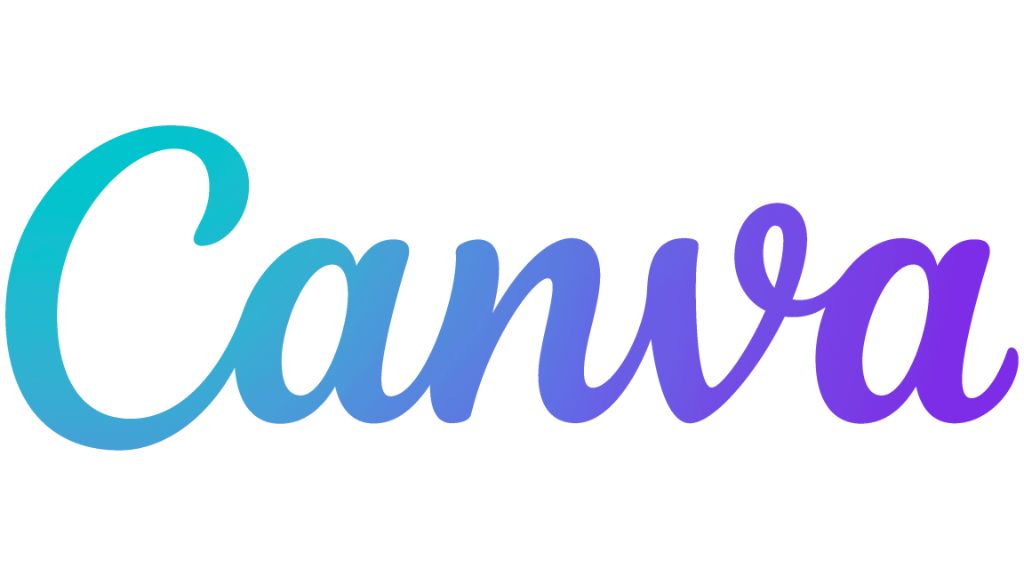How can tech propel our Paralympians towards gold?
You can also stream this episode on Spotify or Apple Podcasts.
Episode Transcript
To access a transcript of this episode click on the drop-down button below.
[00:00:00] Viv Mullan
We would like to acknowledge the traditional owners of the lands on which we record this podcast. The Gadigal people. This is their land, never ceded, always sacred and pay respects to the elders past, present, and emerging of this place. Coming up on Remarkable Insights.
[00:00:16]
(Bright, uplifting music with electronic beats and cheerful synth melodies.)
[00:00:17] Viv Mullan
Coming up on Remarkable Insights
[00:00:18] Angie Ballard:
You've got more possibilities. If you've got a government that invests in sport and invests in technology, then you've also got more access to those things and that shared knowledge of how to use those things effectively.
[00:00:30] Viv:
How can technology propel our Paralympians towards gold? I'm Viv Mullan, and you're in for a treat. In this two part episode, we're joined by Angie Ballard, an Aussie Paralympic icon gearing up for Paris 2024 with innovation on her side. Angie, it's so great to have you here for this episode. Can we start by getting you to introduce yourself and sharing any key parts of your identity that you'd like our audience to know?
[00:01:05] Angie Ballard:
I'm Angie Ballard. I'm a six time Paralympian preparing for my seventh Paralympic Games in Paris later this year. I'm Australian. I am currently based in Canberra, training in the sport of wheelchair racing, which broadly comes under the umbrella of athletics. I've been elected Co-captain of the Australian Paralympic team for this year, which is pretty cool, alongside Curtis McGrath, who's a para-canoeist.
I guess the things that you can't see and you can't even see on the screen is I'm a wheelchair user. I’ve been a paraplegic since I was seven and had a car accident, and, yeah, sometimes that's a big factor in my life and sometimes not very much of a factor.
[00:01:45] Viv:
Thank you so much. Great to have you on the show and I can't wait to learn more. One of the things I would really like to lean into first is the obvious Paralympic Games coming up. So this will be your seventh time round, I believe. And on a personal note, what did it feel like when you heard the news that you were named the co-captain?
[00:02:02] Angie Ballard:
It was really special for me. You know, when I first started Paralympic sport, there were so many leaders that helped me get into this world to understand how this world worked, because these weren't things I could learn at school. They weren’t things I could learn from my family or any kind of sporting club. And when I talk about these leaders, they're not necessarily those obvious leaders out in the public, but they were people that took the time to make sure that I fit in this world, that I understood how to get my joy and satisfaction out of it.
And then they taught me that beautiful value of giving back and leading others through, which is, I think, is actually a huge part of the Paralympic movement, full stop, you know that I've gone through this experience. Let me give you a hand in. So for me, it's kind of a big full circle moment to be asked to be captain because the people that really, helped me, inspired me, and actually figured out some of the practical stuff for me to be involved and be where I am now.
[00:03:05] Viv:
And what does it look like, the preparation for the Paralympic Games?
[00:03:08] Angie Ballard:
It's funny because we're preparing all the time, like I train year round, and I've been training for the last 20 something years, and you know, as soon as one Paralympic Games ends, you start into the new cycle of the next Paralympic Games.
In terms of how I can record data of what I'm doing in training, how we program now is all done on the computer as I used to get a printout off my coach back in the day and I would hand write my diary. So there's the tech when it comes to the sports equipment and that's hugely changed since I've started, but probably not as much as it had for the people that came before me. Like the first racing chairs had no brakes, they had four wheels. It's a bit scary. I was glad that it changed it a little bit just before I came in so the same basic model of the two wheels at the back and a smaller front wheel at the front puts you in an aerodynamic position but over the years the technology comes in with the carbon fibre more knowledge about how to like get those efficiencies in terms of the tires the wheels the push rims the setup in the chair and what the chairs are made out of there's definitely like a huge growth in that area in my sport.
There's an interesting challenge because some of those chairs now cost like 50, 000 Australian dollars, and that's not possible for a lot of people to even access, myself included. But it's also kind of cool to see the tech go that way. Like, because sometimes in the world of disability. We don't have the numbers to perhaps push that and you need that commercial and professional interest to drive up those motivations to improve the tech. So mixed bag at the moment.
[00:04:49] Viv:
Yeah, I can imagine there's sort of a disappointing element to that to think, why does it have to be a commercial element for people to be interested? And I hear that a lot in the conversations that I've had with people throughout my time working in the disability tech space.
And I would love to know, you've been working with some engineers at the AIS to use some 3D printing to improve the gloves you use. Would you mind speaking to that process and your involvement in that?
[00:05:17] Angie Ballard:
So the 3D gloves are an interesting thing. I actually made the gloves in the first place because like many of my peers around the world we originally, I started pushing, way back when, in golf gloves that I thickened up with tape.
[00:05:32] Viv:
I would call that a prototype. Lock that in.
[00:05:35] Angie Ballard:
And then we had gloves made out of rubber and leather that sort of put your hand into a thumbs up position and you would just punch the push rim. And then we figured out somewhere along the way in my career that having a glove that was made out of hard plastic actually could potentially give you a better hit because Your hand didn't soften when you hit, it just all stayed hard, but you've got to understand your technique very well to understand how to get the perfect groove for hitting really hard.
I guess it's like, maybe probably not as technical as ice skating, but you've really got to get two edges to match up to go fast. And if they don't, you just slip off and it doesn't go that well. So I originally made these gloves out of moldable plastic. And I figured out how to make that for me.
And then I started pushing on them and it took me a while to learn how to push on them. It was actually kind of back to square one. Of pushing, but I knew other people had done it. So I was like, okay, I can do this. And then probably about six months into that, those gloves started breaking because they were made out of plastic and they're brittle.
And I started freaking out cause I'm like, I tried to make additional copies and I couldn't cause I couldn't make it the same. So that's when I think we ended up finding a CT scan. Your hand kind of goes into a fist position inside a hard plastic glove that holds my thumb and my fingers. And I
push this through to turn my thumb and fingers. So we CT scan, copy them, and then I got to make modifications to that in a program that I am not familiar with, but the people that helped me are very familiar with, which is awesome because like even last year I was having injury troubles on the outside of my left wrist.
And we sort of figured out that if we could change something on the glove, just a little bit, it meant that every time I was hitting. It wasn't impacting that side of my wrist as much. So for someone like me, who's been pushing for more than 20 years, that's huge because injuries are one of my danger zones at this point in my career.
[00:07:41] Viv:
Yeah. And I was listening to some other interviews that you had been part of and a comment that you made was something to the effect of, with the help of technology, your career has sort of extended to a degree. And I would love to unpack that with you and really get to know exactly what you mean by that.
[00:08:01] Angie Ballard:
I think one of the hardest things about having a disability either in sport or in the big old bad world is finding things that work for you from what's available and the part where I think technology is so awesome now is that we can have this back and forth dialogue and actually change things for the better.
Like, it's not just a print of the same chairs and you have to fit the chair. We can actually get much
more dialogue between the designers and the producers of, in the case of my gloves, that's made a huge difference. It's made me. Way more efficient. It means I can deliver my strength to the push rim way better.
And as we've talked about, it's actually come in handy for preventing some injuries that I've experienced, but that wasn't available 20 years ago. And even things like interacting with the engineering department at the AIS and Australian Institute of sport. They didn't even have the vocab to have these conversations like 10, 15 years ago, but now I can go into their office on the reg because we're still fixing one of my gloves.
And., You know, I take my sports speech and give it to them and then they translate that into technical things that they're going to put into the 3D program so that we can print a new glove. And that's one of the best things that's happened in my career is that ability to work with a whole heap of different specialties and really enhance what we do. That's not just in this little niche corner over here, it's really awesome.
[00:09:33] Viv:
And I don't quite know how to phrase the question, so bear with me, but I want to dive into this idea of how technology can create an equal playing field in some ways for athletes living with a disability. And I kind of want to know, where is the tipping point in that?
For example, there's technology available to some athletes in Australia, but maybe they aren't. available to athletes in other countries. What is the sort of dialogue around that?
[00:10:00] Angie Ballard:
This is actually a huge issue across the Paralympic movement. You've got countries that have better health systems, better, I guess, social attitudes towards disability.
So for me, Accessing a wheelchair that is expensive in Australia is actually pretty much a given. There's people from other countries that can't access transport, can't access wheelchairs, or if they are accessing those things, they're doing it in an unsafe way and not made for their manner. So at the first instance, we've got very different entry points to sport.
Further on from that, so within the Paralympic movement, there's people that use prosthetics, there's people that use wheelchairs, and there's other bits of technology, but they're the main ones in my sport. Obviously, if you've got more money and you're not trying to survive at the baseline, you've got more possibilities. If you've got a government that invests in sport and invests in technology, then you've also got more access to those things and that shared knowledge of how to use those things effectively.
Like you say it in the Paralympic movement, there's a different skew about which sports do well. And you can see that reflected in the equipment, and the technology space for those athletes. So it's interesting and a challenge because what we want to do is make sure that it keeps on improving for people all over the world, whoever we are, cannot get so far ahead that other people can't access it.
One of the things I do love about my sport, like don't get me wrong, technology helps, it really helps, but it's, it's got to be made for you and optimised for you. So someone who has a chair, you might actually be quite a basic chair, but it fits them well and they're set up really well, they can still shine on the world stage, which is pretty cool.
I worry that we get to the stage where that becomes not so easy for everyone around the world, because I don't know anyone that has 50 grand in their pocket to just spend on a chair, just casually, you know, like if you change, if it changes, then you need a chair. Like, I've had, I think, about 10 shares in my career, so it's not an easy thing to replace.
It's not an easy process to get measured and do all of those things, so technology is a fantastic thing, but the part where we share it equally amongst the world is an ongoing challenge, I think.
[00:12:22] Viv:
As this episode comes out, Angie is in Paris preparing for the Games. Join us for part two of this conversation to find out why, up until recently, it would have been illegal for her to travel in Paris with her fellow athletes.
Catch you then! Go Aussies!
Make sure you subscribe or hit follow to not miss another Remarkable Insights episode.
Episode Overview
How can technology propel our paralympians towards gold! In this two-part episode, we're joined by Angie Ballard, Co-Captain of the 2024 Australian Paralympic Team who is gearing up for her seventh Paralympic Games in Paris!
Meet our Guest
Few athletes in any sport have enjoyed the sustained level of performance that Angie Ballard has achieved over an incredible length of time – 25 years and counting. To have spent much of that time at the pinnacle of world para-athletics puts Angie in rarefied air.
After making her Paralympic Games debut at the Sydney 2000 games, she won her first Paralympic medal, a bronze, at the Athens 2004 Paralympic Games. A silver medal in the women’s 4x100m T53/54 at the Beijing 2008 Paralympic Games preceded Angie’s most successful Paralympic campaign to date at the London 2012 Paralympic Games, where she won a pair of silver medals in the women’s 200m T53 and women’s 400m T53, and bronze in the women’s 100m T53.
Her success has not been limited to the quadrennial Paralympic Games - on the World Championship stage she has also made her mark. After winning her first world championship in the women’s 100m T53 in 2002, Angie collected two more world titles in the women’s 200m T53 and women’s 400m T53 at the 2015 IPC Athletics World Championships in Doha, Qatar.
Her ability to not only maintain her competitiveness on the global athletics stage over such a long period, but her desire to support and inspire the generations coming behind her has seen Angie recognised with one of the greatest accolades for any athlete – captaincy of the Australian Team for the 2024 Paris Paralympics. Ballard was appointed to the captaincy alongside Curtis McGrath.
Angie will draw on her vast experience and personal growth over 25 years as an elite level wheelchair racer to deliver the leadership required for such a role. She has pledged to ensure Australian Paralympic Team members felt safe coming to her seeking advice or to help solve problems and to work to help the team and athletes to reach their goals.
Video Highlights
Check out some of the highlights of this episode of the Remarkable Insights podcast, now featured in our captioned video reel!
Key Quotes
Below are some of the key quotes that capture the essence of our discussion:













